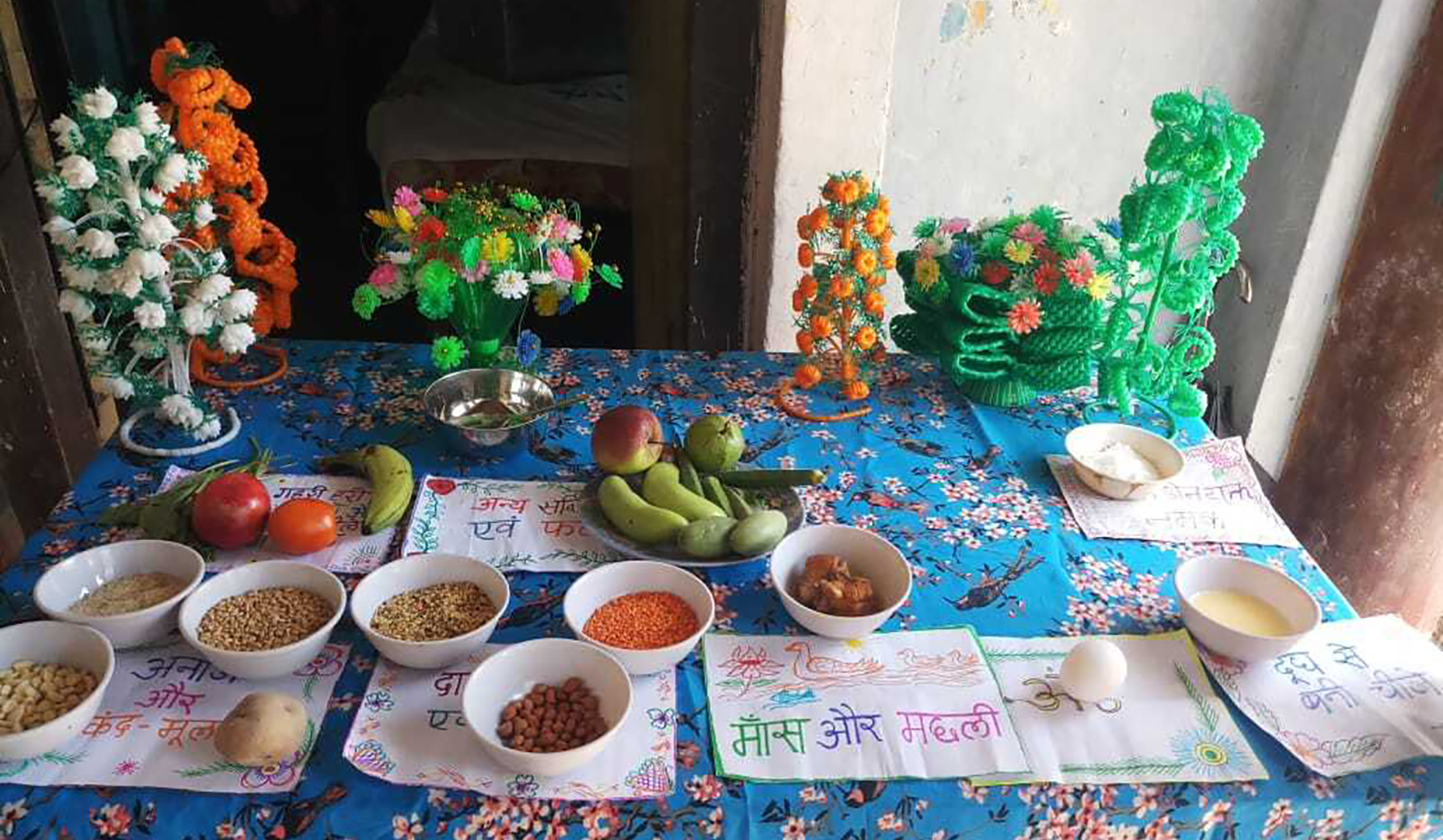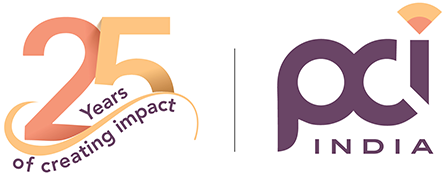A Holistic Approach to Improving Health and Nutrition: The 360° SBCC Initiative with JEEViKA

Bihar, India’s third most populous state, faces profound challenges in health and nutrition. Over 51% of its population is considered “multidimensionally poor,” highlighting the severity of the issues its resident’s encounter. While there have been improvements in various health and nutrition indicators, the problem of undernutrition in mothers and children persists. To address these pressing challenges, PCI India joined hands with JEEViKA, the State Rural Livelihood Mission (SRLM), to launch an extensive 360° Social Behavior Change Communication (SBCC) campaign across all 38 districts of Bihar. The goal was to drive behavioral changes in dietary diversity among Self-Help Groups (SHGs), ultimately enhancing the nutritional status of individuals and entire communities.
The SBCC campaign primarily tackled the critical issue of micronutrient deficiency, often stemming from inadequate dietary intake. Bihar had alarmingly high rates of anemia among children (69%) and non-pregnant (64%) and pregnant (63%) women. This nutritional crisis was intricately linked to local cultural and social practices that heavily influenced dietary choices within households. Many young mothers and children were not consuming diets meeting their nutrient requirements, leading to the term “Hidden Hunger.” The SBCC recognized dietary diversification as a powerful solution, ensuring not only an adequate intake of micronutrients but also the minimum dietary requirements.
JEEViKA, a women-led initiative by SRLM, strives to empower rural communities economically and socially. PCI India’s JEEViKA Technical Support Program (JTSP) collaborated with JEEViKA to make health, nutrition, and gender interventions sustainable within SHG collectives. In 2017, the Complementary Feeding Campaign achieved significant success, effectively doubling the adoption rate of healthy feeding practices. Building on this achievement, a comprehensive 360° SBCC approach was introduced, targeting pregnant women, lactating mothers, and children aged 0 to 23 months. This holistic approach utilized five touchpoints, including SHG meetings, home visits, community-based events, and digital tools, all aimed at improving the nutrition of rural households.

IMAGE1: THE 360° SBCC APPROACH
Rinku Devi’s Story
Rinku Devi and her family initially lacked an understanding of the importance of nutrition and dietary diversity for the physical and mental growth of children. However, after participating in the SBCC campaign, their perspective underwent a profound transformation. Recognizing their previous mistake, Rinku Devi and her family pledged not to repeat it with their next child and wholeheartedly embraced the campaign’s teachings.
Saroj Devi and Suman Devi, community cadres trained in SBCC, paid a follow-up visit to Rinku Devi’s home. They were delighted to learn that Rinku Devi had delivered her baby in a government hospital, and the newborn was healthy and not underweight. This time, Rinku Devi and her family ensured that the baby received colostrum and exclusive breastfeeding. Both the cadres continued to visit Rinku Devi several times to ensure that complementary feeding started at the right time and that at least four out of seven food groups were included in the child’s daily meals.
When Saroj Devi and Suman Devi visited Rinku Devi’s home, she enthusiastically shared details about the food groups she provided. She had incorporated fruits and green vegetables not only for the children but for the whole family. Rinku Devi and her family acknowledged a noticeable difference between their two children. Unlike the first child, who frequently fell ill, the youngest rarely did and recovered quickly if he did fall sick. The family expressed gratitude to the JEEViKA Didis for their guidance and support.
Independent Evaluation and Impact
Several third-party evaluations and surveys conducted between 2015 and 2021 during the JTSP-JEEViKA health integration intervention phase yielded encouraging results. These evaluations demonstrated significant improvements in Maternal, Infant, and Young Child Nutrition (MIYCN) and Maternal, Neonatal, and Child Health (MNCH) indicators in areas where the intervention took place. Notable achievements included a two-fold increase in minimum dietary diversity and minimum acceptable diet among children aged 6-11 months. Furthermore, improvements were observed in maternal dietary diversity, breastfeeding practices, child feeding practices, institutional delivery, birth preparedness, newborn care practices, nutrition practices, and immunization coverage.
The endline report of the JEEViKA’s Bihar Transformative Development Project (BTDP) states that, “Today, half the state’s children under 5-years of age are eating a more diverse diet than before. Before 2018, just 2 out of 10 were doing so. The diet among women of reproductive age has also improved during this period (2018-2022) with 6 out of 10 women eating better, compared to just 2 out of 10 before.”
The SBCC campaign’s remarkable success led to its expansion across Bihar. The initial phase reached over 10 lakh beneficiaries in 35 districts, while the second phase extended to 13.93 lakh beneficiaries in 38 districts. These campaigns can be rolled out annually in bursts of three-month cycles to maintain their impact.
SOURCE: WORLD BANK i

SOURCE: WORLD BANK ENDLINE SURVEY OF BTDP
Learnings
i. Large-scale communications around health, nutrition and sanitation and capacity building of cadres, along with sustained livelihood promotion were the key to improving the nutrition of rural households.
ii. The success of the SBCC campaign underscores the potential to enhance child dietary diversity in rural communities through a 360° SBCC approach integrated into community platforms like SHGs.
iii. The Phygital Approach, combining physical and digital tools, has proven effective in transmitting key messages while maintaining personal engagement.
iv. The SBCC campaign’s scalability and significant impact on health and nutrition indicators indicate the importance of continuing the campaign in annual cycles to achieve sustained results.
In conclusion, the 360° SBCC initiative is a shining example of how a comprehensive approach can be a game-changer in addressing critical health and nutrition challenges. By empowering women and communities with knowledge and resources, we can pave the way for a healthier, more prosperous Bihar and India as a whole.
Author: Abraham Dennyson, Associate Director – Bihar Director
